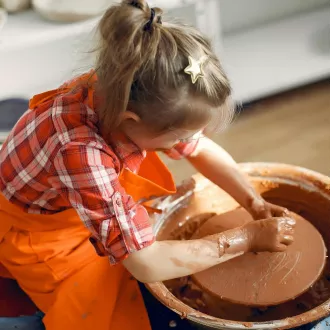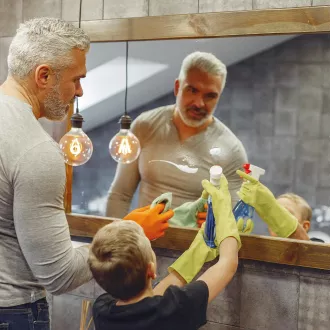Why is it important to allow children to make mistakes?
Allowing children to make mistakes offers multiple benefits that are essential to their development:
- It fosters resilience: Facing mistakes and learning from them helps children develop greater emotional resilience. Understanding that failure is not the end of the world, but an opportunity to learn, teaches them to overcome challenges and adapt.
- Develops problem-solving skills: When children face mistakes, they must find solutions on their own, which enhances their problem-solving skills. This process of self-correction and reflection helps them think critically and creatively.
- Increases self-confidence: Overcoming mistakes and learning from them strengthens children's self-confidence. Seeing that they can handle difficult situations boosts their self-esteem and gives them the confidence to face new challenges.
- Promotes independence: By allowing them to make mistakes, children learn to make decisions and take responsibility for their actions, which fosters their independence and autonomy.
How to allow children to make mistakes in a constructive way
It is crucial that the process of allowing mistakes be handled constructively. Here are some strategies for doing so:
- Offer support and guidance: Rather than intervening directly to solve problems, provide support and guidance. Help children analyze their mistakes and think of ways to fix them.
- Teach the importance of process: Explain to them that the process of trying, failing and learning is as valuable as success itself. This will help them see the value in effort and perseverance.
- Encourage self-reflection: Encourage children to reflect on their mistakes and identify what they might do differently in the future. This self-reflection is key to learning and personal growth.
- Celebrate attempts and efforts: Recognize and celebrate not only successes, but also attempts and efforts. This motivates children to keep trying, even when they face difficulties.
Examples of how to handle mistakes in different contexts.
Depending on the context, the way you handle mistakes may vary. Here are some examples:
- In academics: If a child makes mistakes on a school assignment, instead of simply correcting him, work with him to understand why he made the mistake and how he can improve.
- In extracurricular activities: During activities such as sports or the arts, allow the child to experiment and learn from his mistakes to improve his skills and techniques.
- In daily life: If a child has difficulty with a household chore, such as organizing his room, allow him to do it his own way and offer advice only when necessary.
Conclusion
Allowing children to make mistakes is critical to their overall development. Through mistakes, children learn valuable life lessons that will help them become confident, resilient and independent adults. Fostering an environment where attempts are valued and mistakes are learned from is key to their growth and future success. If you are interested in exploring more about how to support child development and other educational topics, we invite you to discover our courses designed for parents and educators.





